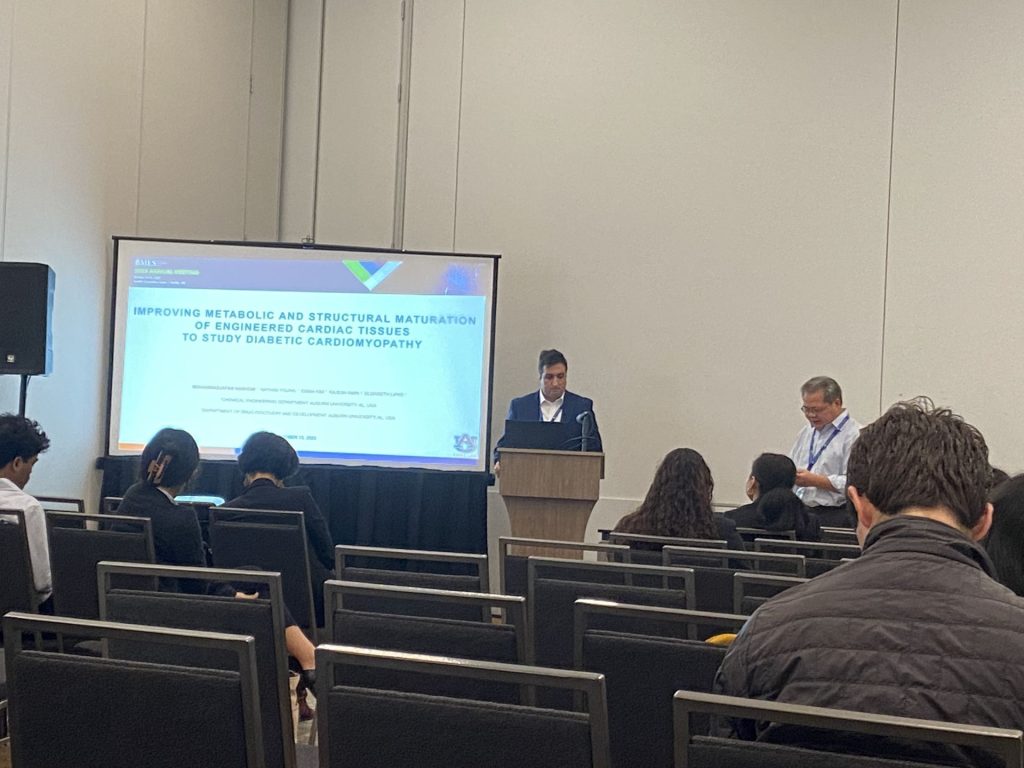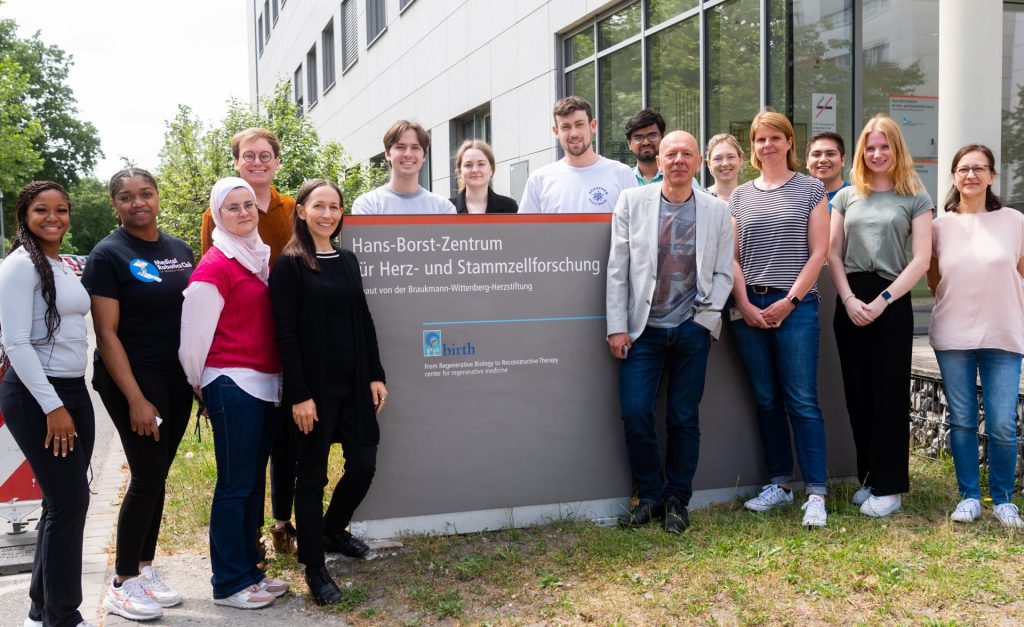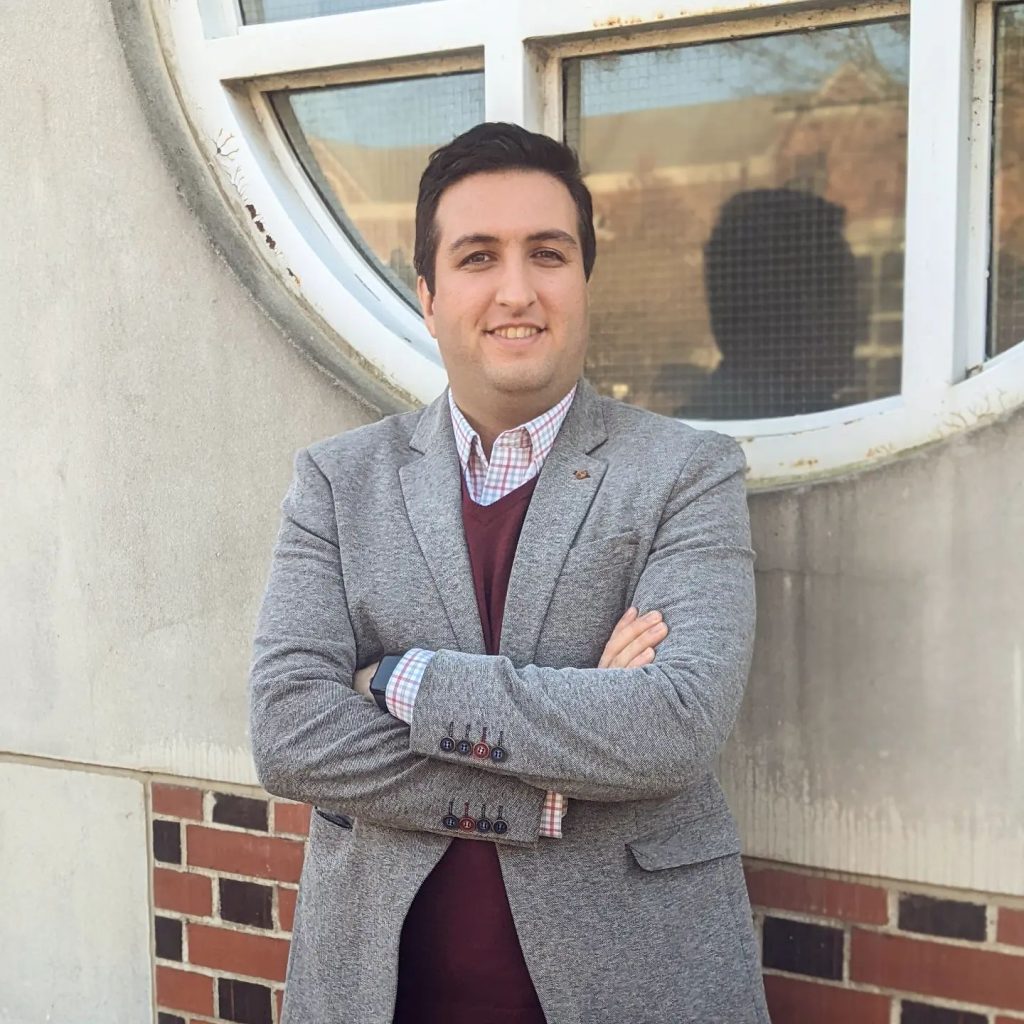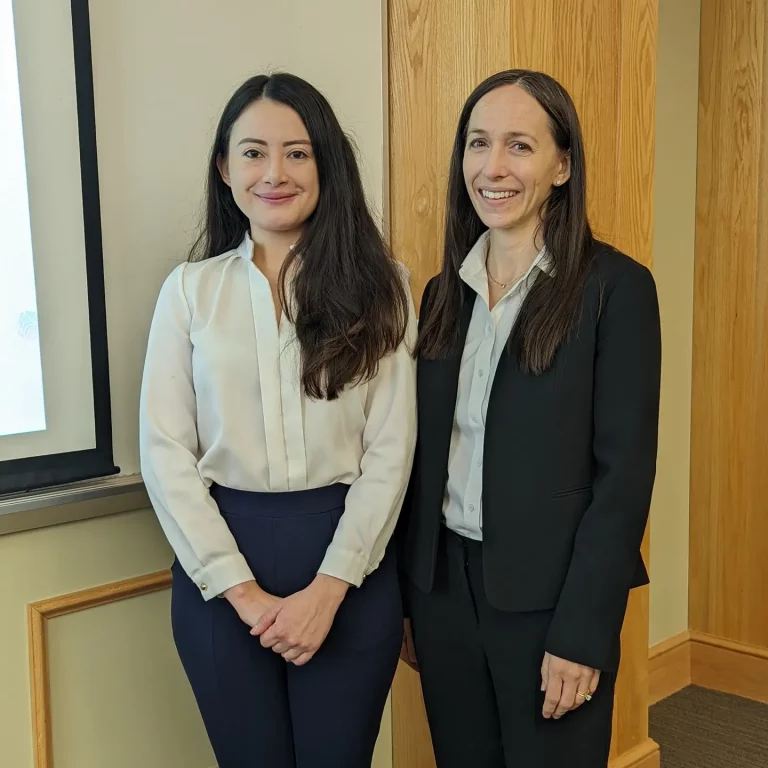Lipke Lab traveled to Seattel, WA to present at the 2023 BMES Annual Meeting. Mohammad presented an oral presentation entitled “Improving metabolic and structural maturation of engineered cardiac tissues to study diabetic cardiomyopathy”.

Lipke Lab traveled to Seattel, WA to present at the 2023 BMES Annual Meeting. Mohammad presented an oral presentation entitled “Improving metabolic and structural maturation of engineered cardiac tissues to study diabetic cardiomyopathy”.

Dr. Lipke took five summer researchers to Hannover, Germany to perform research in the Leibniz Laboratories for Biotechnology and Artificial Organs (LEBAO). Students had the opportunity to work in research labs, including labs from Dr. Robert Zweigerdt, Dr. Ina Gruh, Dr. Ruth Olmer, Dr. Nico Lachmann, and Dr. Stefan Kalies. This program provided students with the opportunity to conduct research at the interface of clinical application and biomanufacturing, advancing their knowledge of German culture, and becoming aware of scientific education and carrier opportunities in regenerative medicine on a trans-institutional and trans-Atlantic level. Students arrived in Germany at the end of May 2023, and returned to the US at the end of July 2023.
This collaborative initiative was made possible by competitive International Research Experiences for Students (IRES) grant funding acquired from the U.S. National Science Foundation (NSF) and is focused on process development for cell and tissue manufacturing.
To read more about this opportunity, visit this link.

Alt Text: From left to right, Jada Neal, undergraduate student at Auburn Univeristy (AU), Jasmine Brown, undergraduate student at Georgia Tech, Fawaz , graduate student at MHH LEBAO, Justin Harvell, graduate student at AU, Dr. Elizabeth Lipke, faculty at AU, Stephen Wheat, undergraduate student at Louisiana State Univeristy, Shifaa Abdin, graduate student at MHH NIFE, Liam Wilson, graduate student at MHH LEBAO, Rajesh Vivekanandan, graduate student at MHH LEBAO, Dr. Robert Zweigerdt, head of research group at MHH LEBAO, Aileen Schmidt, graduate student at MHH LEBAO, Dr. Ruth Olmer, head of research group at MHH LEBAO, Carlos Bautista, graduate student at MHH LEBAO, Ellie Hall, undergraduate student at Mississippi State, and Mirela Wilkening, an assistant at MHH LEBAO. The group are standing in front of a gray and red building sign in Hannover, Germany.
We are ecstatic to announce that Lipke Lab graduate researcher, Mohammadjafar Hashemi, was awarded a 2-year American Heart Association Predoctoral Fellowship for his research studying the link between cardiovascular disease and diabetes. Since being awarded the fellowship, Mohammadjafar had the opportunity to be a guest on the Auburn Engineers #GINNing Podcast. Click here to listen to him discuss his research and his plans for the future. Congratulations, Mohammadjafar!

Check out our YouTube channel here to watch Dr. Yuan Tian introduce the 3D engineered heart tissues produced using our microfluidic cell encapsulation system and learn how they can benefit the drug discovery and development process.
We would like to wish a huge congratulations to Lipke Lab graduate researcher, Mayra Paez, for graduating with her Master’s degree this fall! Her thesis was entitled, “Encapsulation of equine mesenchymal stem cells in injectable PEG-fibrinogen microspheres for local cell delivery”.

A recent publication in Scientific Reports from the Lipke and Arnold Labs at Auburn University titled “A Microvascularized Tumor-mimetic Platform for Assessing Anti-cancer Drug Efficacy” reports on using the SynVivo microfluidic platform to develop and validate a three dimensional in vitro breast cancer model with a tumor-mimetic microvascular network. The model recapitulates the in vivo heterogeneity in tumor perfusion and resulting differences in cellular morphology, growth and drug responses.
This significant body of work resulted from the collaboration of Dr. Lipke’s tissue engineering background with Dr. Arnold’s cancer biology and drug delivery expertise.
According to Dr. Lipke “ Replicating the pathophysiological architecture and non-uniform drug distribution of native vascularized breast tumors is critical for a realistic tumor model. SynVivo’s microvascular networks provided just the right environment to monitor the therapeutic circulation in the vasculature, transport across the vessel walls, and delivery to 3D tumors, which renders it ideally suited as a platform for performing cellular assays and drug screening”.
Dr. Arnold agrees and adds, ”The ability of these engineered cancer tissues for long-term culture, heterogeneous morphology and anti-cancer drug response provides a unique perspective to understand how nanomedicines may interact with various tumors. This will enable development of therapeutics with improved efficacy and minimal toxicity while improving patient outcomes, thereby providing an in vitro model analogous to the heterogeneity observed in vivo”.
This vascularized tumor model provides a necessary platform for investigation of cancer-stromal-endothelial interactions, tumor metastases, drug delivery and efficacy for both pre-clinical research and translational outcomes.
Download the full publication below
A Microvascularized Tumor-mimetic Platform for Assessing Anti-cancer Drug Efficacy
Pradhan et al (2018) 8:3171 | DOI:10.1038/s41598-018-21075-9

Dr. Elizabeth Lipke’s research on cancer models and drug testing is highlighted in Auburn University webpage:
Engineered model tumors look to advance cancer drug application
Youtube link
A collaborative project with researchers from College of Veterinary Medicine has focused on isolating endothelial progenitor cells in horses and delivering these autologous cells to heal distal limb wounds. The cells were encapsulated in engineered biomaterials using our custom designed microfluidic system.
Related publication: https://www.liebertpub.com/doi/abs/10.1089/ten.TEC.2017.0233
Related news: http://www.vetmed.auburn.edu/blog/cvm-news/vet-med-engineering-collaboration-working-to-improve-equine-wound-healing/